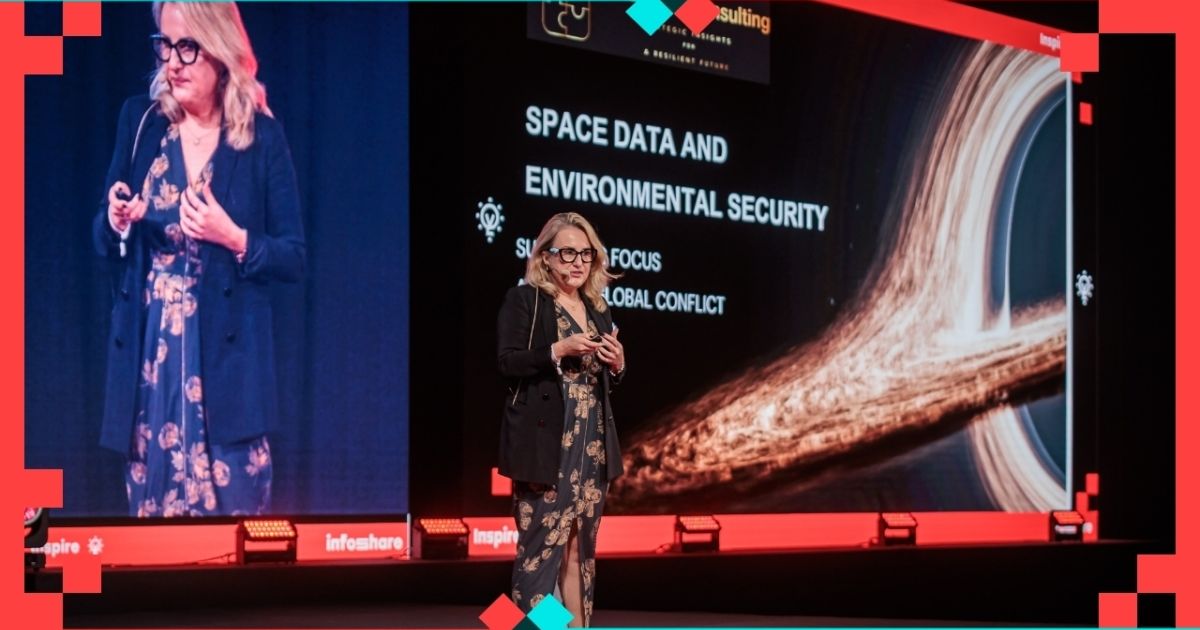VIEW SPEECH SUMMARY
- Satellites monitor Earth's environment daily, providing critical data for decision-making.
- Examples include detecting small-scale deforestation via AI that monitors tree canopies.
- Satellites help manage water scarcity, natural disasters, and environmental threats.
- Early warning from satellites can prevent environmental catastrophes, such as algae blooms causing massive fish kills in Poland's Odra river.
- Satellite data is crucial for security, financial systems, and everyday conveniences like GPS navigation.
Challenges in Public Awareness and Perception
- Many people, including everyday citizens, misunderstand the purpose of space investments, questioning funds spent on space rather than local problems.
- The speaker explains the pervasive dependence on satellite technology in daily life.
- Space technology companies, like IceEye, have achieved groundbreaking innovation with miniaturized radar satellites, yet their accomplishments are not widely recognized domestically.
Global Cooperation and Environmental Responsibility
- Space collaboration persists despite geopolitical tensions, exemplified by cooperation on the International Space Station.
- Environmental challenges like climate change transcend borders, requiring global cooperation.
- EU programs such as Copernicus provide free, open Earth observation data accessible to all.
- Norway’s NICFI program funds commercial data sharing with tropical countries to protect critical forests, demonstrating positive impactful decision-making.
Call to Action and Future Vision
- Urges voters to consider the long-term future for coming generations, beyond immediate personal or political interests.
- Highlights the importance of cross-sector engagement and awareness of space's real-world benefits.
- Encourages open-mindedness towards space technology’s potential in solving global issues.
- Invites attendees to engage with the broader space community beyond specialized conferences to foster collaboration.
Actionable Items / Tasks Highlighted:
- Promote public education and awareness about how space technologies benefit everyday life.
- Foster collaboration between space professionals and other sectors to widen impact.
- Encourage policymakers and citizens to consider long-term planetary health in decisions.
- Support and utilize free and open Earth observation data (e.g., from Copernicus).
- Recognize and celebrate national and regional achievements in space technology development.
- Vote responsibly with future generations and environmental sustainability in mind.
- Increase communication and marketing efforts about space sector benefits to the general public.
Space Data and Environmental Security: Sustaining Focus Amid Global Conflict
10:50 - 11:10, 27th of May (Tuesday) 2025 / INSPIRE STAGE
Space-based Earth observation (EO) is essential for tackling global environmental challenges such as climate change, biodiversity loss, and disaster management. Satellites provide continuous, high-resolution monitoring of environmental changes, delivering critical data for scientific research, policy development, and emergency response. From tracking deforestation and Arctic ice loss to measuring greenhouse gas emissions and ocean temperatures, satellite observations enhance climate models and improve disaster preparedness, enabling proactive risk mitigation.
However, despite its significance, investment in environmental monitoring is increasingly being sidelined in favor of rising security and defense priorities. While geopolitical conflicts demand attention, neglecting climate monitoring poses long-term threats to global stability. Escalating climate impacts—extreme weather, food insecurity, and displacement—exacerbate existing security risks and require sustained, strategic intervention.
Climate change will not wait for geopolitical conflicts to resolve. Efforts to monitor and combat its effects must remain a priority. Governments, international organizations, and private stakeholders must recognize the intrinsic link between security and sustainability. Continued investment in space-based Earth observation is crucial not only for mitigating environmental crises but also for addressing the root causes of climate-driven instability and displacement, ultimately contributing to a more secure and resilient world.



